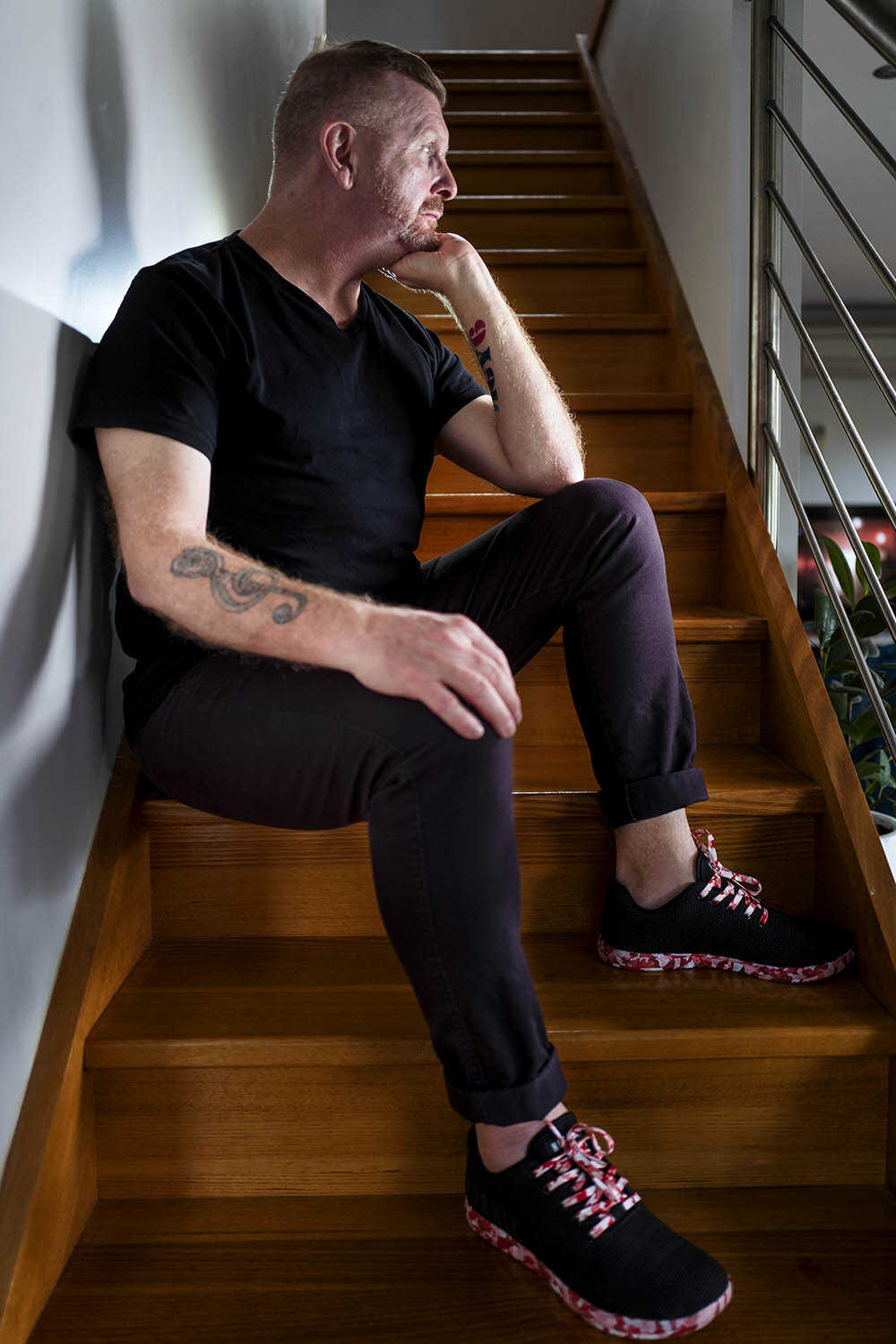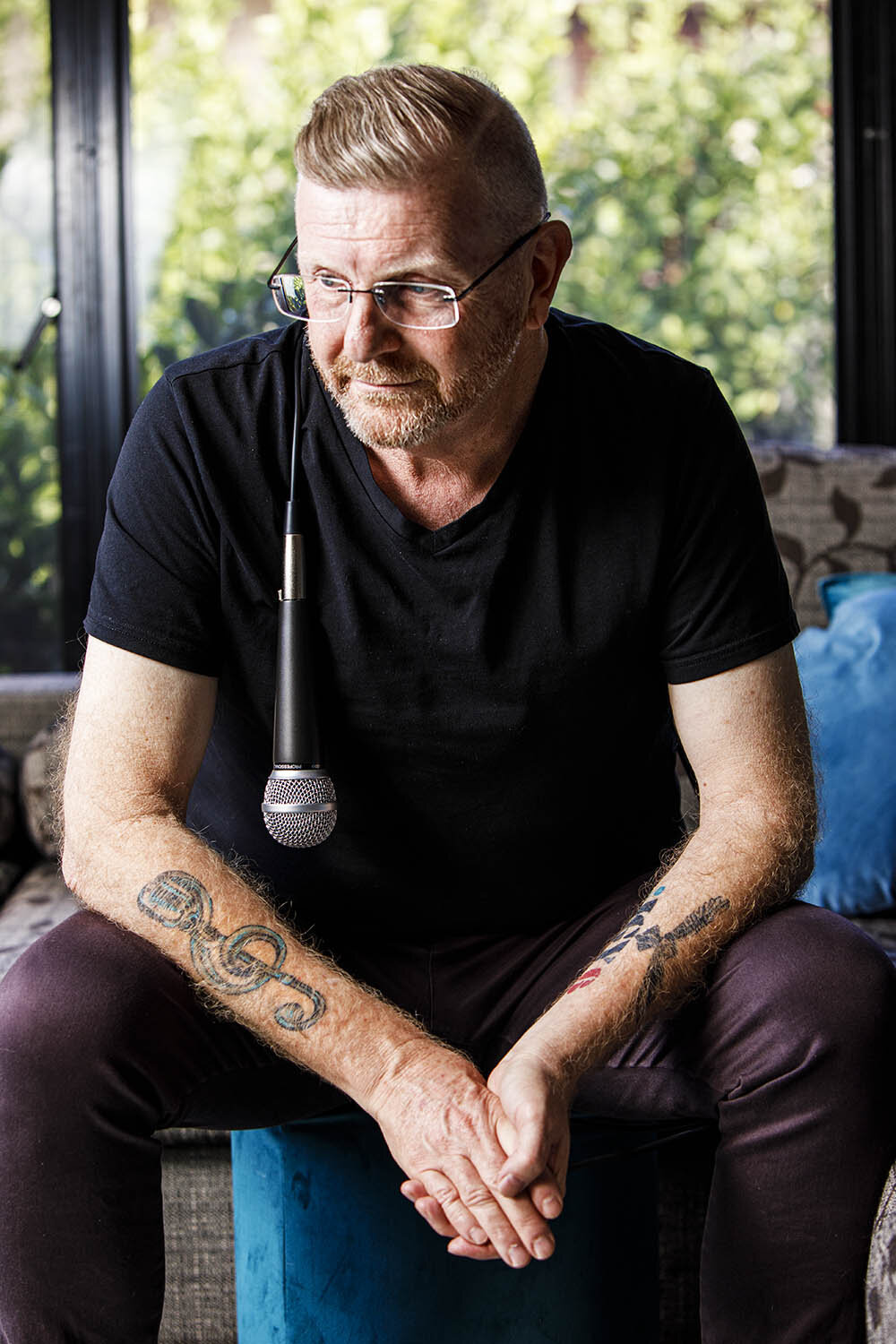Glenn Buesnel-May
Air Force, Musician - Singer - Poet - Photographer
Glenn’s childhood was an ever-swaying pendulum between the male role models in his life. It swung from having to play the role of protector for his mother and siblings against his father’s domestic abuse to witnessing great compassion from his stepfather and an Aboriginal friend’s dad, Ken.
“Possessing humble decency, Ken would suddenly appear at our doorstep, his kindly eyes always glistening against his beautiful, dark skin, holding a box of fruit and vegetables at the very moment my mother ran out of money to feed my sister, myself and my two younger brothers.”
Born with a gift of being able to sing, Glenn was enveloped in a sense of joy when he was surrounded by music.
“Unfortunately, it was a gift discouraged and ridiculed,” he says.
Opposing forces in young Glenn’s life were again at play. He endured mockery from his influential figures and became locked in a lifetime of denial about his talent. Yet, his grandma’s words to him, at eight years old, rang strong and helped him maintain a grip on what would, eventually, bring him his greatest contentment.
“Glenn, you have an amazing gift. Never stop singing,” she said.
In 1974, his family was seemingly destroyed when his mother placed Glenn and his brothers into the Church of England Homes for Children at Carlingford, Sydney, just months after Glenn had sung as a boy soprano at the opening of the Sydney Opera House. Finding factory work, his mother attempted to dig her way out of destitution However, fate would cruelly upend his mother in that period, as an industrial accident rendered her unable to ever work again.
Fate intervened again, but this time fortuitously. Glenn’s mother met a World War II navy veteran who fell in love with the remnants of his long-suffering mother. He opened his heart to Glenn’s mother and supported her to the extent that she could retrieve her children from the homes just as foster care was being considered. They later married.
Tragically, in 1987 Glenn and his brothers were orphaned a second time when his mother and stepfather died, just eight weeks apart. Glenn, still a young man, sacrificed a burgeoning professional music career to move back into the Housing Commission home in Sydney’s outer western suburbs. From here, he worked two jobs and guided his brothers into careers.
At 26, Glenn joined the Royal Australian Air Force (RAAF) and it was the first time that he felt a lightening of the burden of being responsible for others. This was a pivotal moment, where he could put his unfortunate life behind him and look towards a positive future.
Glenn enlisted as a Clerk Supply and, after recovering his decimated education, was commissioned as a Logistics Officer. He became a Leadership Facilitator for Non-Commissioned Officers at the RAAF’s School of Post Graduate Studies’ Airman Leadership Flight. Following commissioning, he became Directing Staff at the RAAF Officers’ Training School. Promoted to Squadron Leader before retiring in 2010, his last official positions were as an Air Force Leadership Officer at the Centre for Defence Leadership and as an Honorary Aide-de-Camp to two successive Governors of Victoria.
Glenn valued the structure of military life that had been absent from his childhood and made friends for life among trainers, students, workmates and superiors. However, he was also exposed to instances of unacceptable behaviour during his service, which plunged him into Post-traumatic stress disorder (PTSD).
Marrying in 1990 and raising a young family, Glenn realised that he desired more than what the Australian Defence Force (ADF) could provide.
“I had contributed enough, and left with gratitude for all the development, opportunities and friends the ADF gave me.”
Glenn’s focus was now on his three children, and keeping them safe from the traumas of the childhood that he had endured.
“The most beautiful humans I’ve ever known.”
His own experience as a victim/survivor of abuse led Glenn to becoming an active ambassador and State Chair for White Ribbon Australia, which advocates for women who experience domestic violence.
“I’m a feminist,” he proudly declares.
Having been denied his creative life as a child, and masking it in the military, it was time for Glenn to finally allow his creative self its full expression.
As Glenn today sits with a microphone slung over his shoulder, he considers it a metaphor. His creative life is on the verge of flourishing. He now has the opportunity to appreciate and develop himself as a musician, a photographer, a poet and an author.
Glenn is, finally and fittingly, a respected musician who is writing and producing his own music.
“I am the classic Billy Elliot! It’s time to banish the voices that left me like an injured tiger in a paper cage.
“It’s my time.”
@buzz_may



